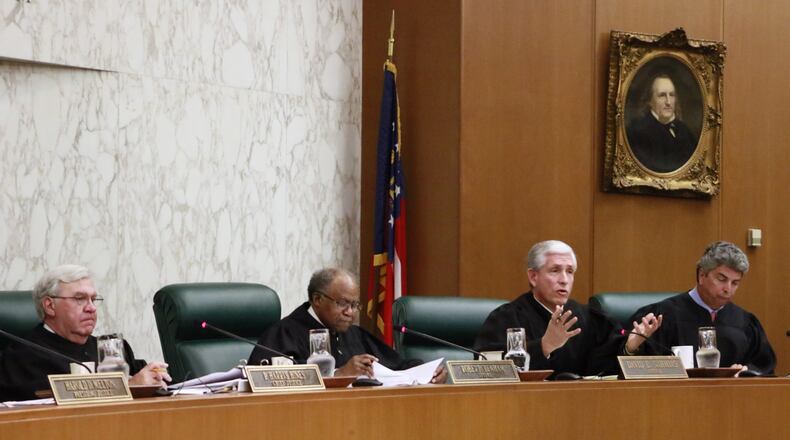Georgia’s highest court has determined that a state law allowing taxpayers to steer some of what they owe the state to private schools instead does not violate the state constitution.
The unanimous ruling Monday by the Georgia Supreme Court strikes a blow against the claim by Raymond Gaddy and other taxpayers that the state law establishing tax credit student scholarships is unconstitutional.
The opinion says taxpayers have no standing to sue because tax credits do not equal tax revenue: “Because each of the constitutional provisions relied upon by plaintiffs involve the expenditure of public funds, and the statutes that establish the program demonstrate that no public funds are used in the program, plaintiffs lack standing as taxpayers to assert these claims,” the opinion says. “Plaintiffs’ complaint fails to show that they, or any taxpayers for that matter, are harmed by this program.”
Taxpayers pledge money — up to $1,000 for an individual, $2,500 per married couple and $10,000 for shareholders or owners of businesses (except “C” corporations, which can contribute up to three quarters of their state tax debt) — to specific private schools and get a tax credit off what they owe the state for the same amount. The money passes through nonprofit scholarship organizations that assign it as scholarships to students and keep up to 10 percent as fees.
Gaddy sued the Georgia Department of Revenue in Fulton County Superior Court in 2014, alleging the program is unconstitutional because some schools that receive the money are religious. The Fulton judge dismissed all but one of Gaddy's claims, prompting his appeal.
The Fulton judge, Kimberly Esmond, also ruled against a cross appeal by the revenue department, but the supreme court reversed her on that decision, dealing another blow to the plaintiffs. They claimed the the revenue agency was failing to enforce the part of the law that says scholarship organizations can’t let the taxpayer contributors pick the students who receive their money. The revenue department sought unsuccessfully at trial to dismiss that claim and the high court agreed that it should have been thrown out.
The new ruling removes uncertainty about the legality of the program, which is capped annually at $58 million. Lawmakers considered lifting the cap this year, but decided not to amid concerns about the pending supreme court decision.
In other Education news:
About the Author
Keep Reading
The Latest
Featured


